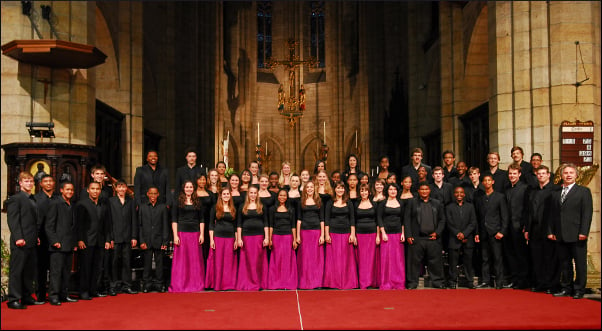
- Senzenina
- Released in: 1993
Although Albert Nyathi’s 1993 version has a somewhat different theme and tune, earlier iterations of this song have actually been sung at funerals and sacred churches since the 1950s.

Although Albert Nyathi’s 1993 version has a somewhat different theme and tune, earlier iterations of this song have actually been sung at funerals and sacred churches since the 1950s.

Albert Nyathi, a Zimbabwean poet, claims to have written the song “Senzeni Na” on April 10, 1993, the day of Chris Hani’s assassination. Hani was a former chief of staff of the armed wing of the African National Congress and a militant voice against Apartheid, and his death at the hands of a white Polish immigrant stirred racial tensions in South Africa. Famously, Nelson Mandela called for national unity in a speech that presaged his political victory a year later, when he was elected president in 1994’s historic multi-ethnic democratic elections. Although Nyathi’s version has a somewhat different theme and tune, earlier iterations of this song have actually been sung at funerals and sacred churches since the 1950s.
During the Apartheid era, any person of color who wished to leave his or her designated area and enter a city was required to carry a printed permission called a passbook, which functioned like a kind of internal passport. On March 21, 1960, in the township of Sharpeville, near Johannesburg, black men and women of all ages took to the streets to voice their frustrations against these so-called “pass laws.” The South African Police started shooting into the crowd, killing sixty-nine demonstrators and seriously maiming many more. After this event, now known as the Sharpeville Massacre, the South African government banned the African National Congress and, four years later, imprisoned Nelson Mandela. Thus, “Senzeni Na” became the theme song of this era.

IsiZulu and isiXhosa are very similar to the ear, so that they sound more like different dialects than different languages. “Senzeni Na” is a mournful lament, an outcry of devastation. It is sung in the call-and-response style, in which a singer calls out a line which is then echoed by the chorus. The phrase “Senzeni Na” is often spelled out “Senzenina,” and it means “What have we done?” It is constructed from the words “na” (to have), “pheza” (have done), and “si” (we), and it includes the term “enza,” which translates as: “To act or behave in a certain manner or to bring about a certain condition or state.” This term is also found in the words “senzenjani” or “isEnzenjani.”
To understand the significance of the song, one must ask who the chorus is calling at. Since “Senzeni Na” originated as a gospel song, the recipient could be God himself. A singer voices the opening prayer, “What have we done?” The chorus then joins in, repeating the question in a melodious, harmonized a cappella. As the chant continues, so do the various members of the chorus take turns asking, “What have we done?” The initial singer then responds, “Our sin is being black.” In isiZulu, the line reads, “Sono sethu ubumnyama.” “Sethu” means “our,” the adverb “uma” means “when,” “mnayama” means “black,” and “iSono” means “sin.” However, any true believer knows that God does not make mistakes. Therefore, being black cannot be the only reason for the members’ suffering, and the chorus continues repeating “Senzeni Na.”
The soloist then calls out, “Our sin is the truth,” which, in isiZulu, reads: “Sono sethy yinyaniso.” This last word is derived from “iQuiniso,” which translates as “truth,” and “isi Yningisa,” meaning “It is or was in account of.” Black people allowed the white man to settle in South Africa, and because of this truth the chorus is facing the consequences of Apartheid.

The chant of “Senzeni Na” returns, and then a fourth line reveals what the aforementioned consequences are: “They are killing us,” or “Siulawayo.” This word stems from “ukuBulalwa,” “ukuBulala,” and “ukuHlatshwa,” which translate as “killing,” while “lawa” means “these.” The song closes with a plea to God’s will, “Let Africa return.” The equivalent isiZulu phrase, “Mayibuye iAfrica,” derives from “Buyela,” “buya,” “buyisa,” or “buyisele,” which translate as “return.”
“Senzeni Na,” or rather this modern version of it, is a reminder that truthful prayers are heard and answered: when Nelson Mandela became president in 1994, a year after Nyathi wrote his lyrics, the last remnants of Apartheid came to an end. Writer and director Duma Ndlovu has likened this song to the American protest anthem “We Will Overcome.”